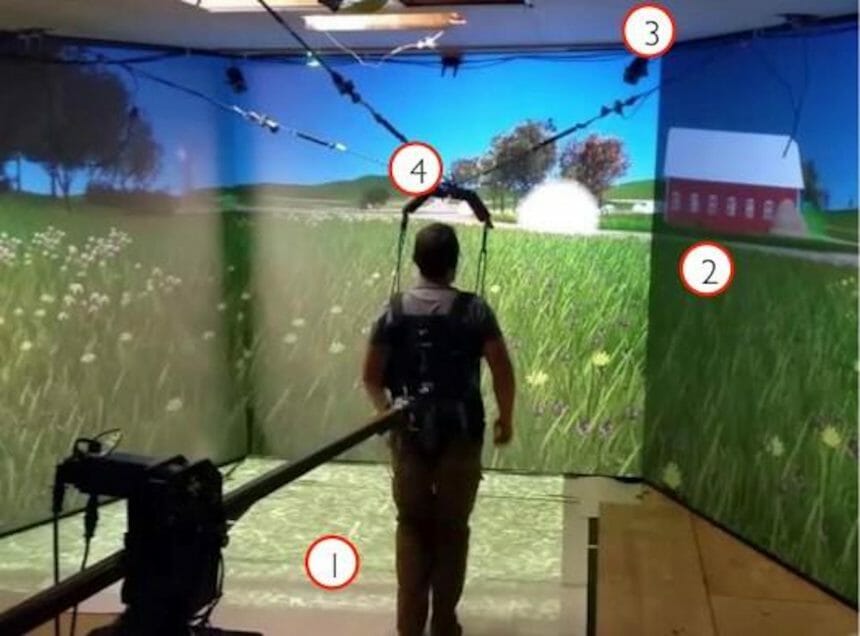
Researchers say they are encouraged by preliminary results of a study demonstrating that virtual reality can help people with Parkinson’s disease improve their balance.
In the trial by the Motion Capture Core Facility at the University of Utah, 10 people tested a virtual reality training system on a treadmill in three 30-minute sessions a week for six weeks. After the program, they showed significant improvement in their ability to step over large and small virtual boxes, as well as improvement in balance and in hip and ankle range of motion, according to investigators.
“We are hopeful that this improved performance relates to decreased falls in their everyday life,” K. Bo Foreman, PT, Ph.D., an associate professor and director of the facility, said in a statement.
Using equipment such as a fall restraint tether, the system is meant to provide a safe place for muscle control and balance skills to be honed.
“Participants enjoyed the experience and thought it was fun, not just exercise,” Foreman said. “They liked training and challenging themselves without the fear of falling.”
The researchers plan to investigate how their virtual reality outcomes compare with outcomes of studies in which people with Parkinson’s underwent traditional training programs or no training.
The team also hopes to adapt the system for head-mounted virtual reality devices, which Foreman said would make it easier to implement for clinical use.



